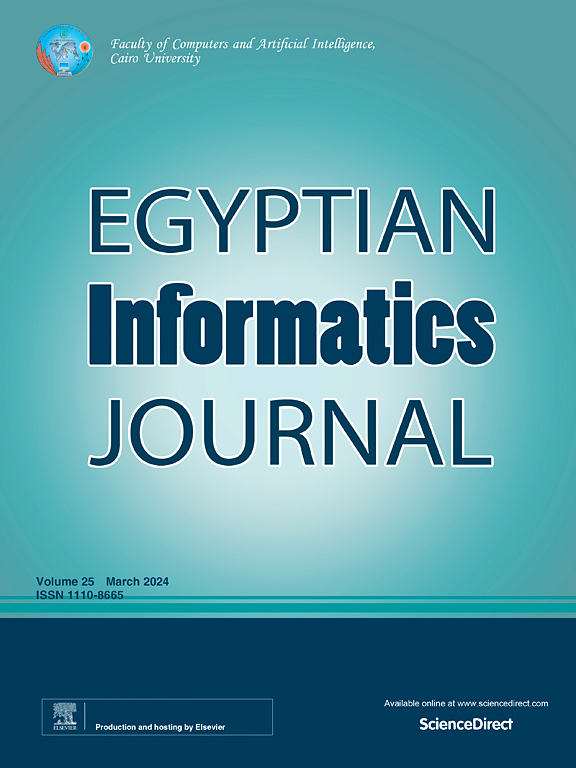Weighted explainable federated learning for privacy-preserving and scalable energy optimization in autonomous vehicular networks
IF 4.3
3区 计算机科学
Q1 COMPUTER SCIENCE, ARTIFICIAL INTELLIGENCE
引用次数: 0
Abstract
The rise of electric and autonomous vehicles in smart cities poses significant challenges in vehicular energy management, including unoptimized consumption, inefficient grid utilization, and unpredictable traffic dynamics. Traditional centralized machine learning models and cloud-based Energy Management Systems (EMSs) often struggle with real-time adaptability, high-dimensional data processing, and privacy concerns. While Federated Learning (FL) offers a decentralized solution by enabling edge devices to collaboratively train models without sharing raw data, conventional FL typically treats all client contributions equally—regardless of their data volume, quality, or contextual relevance. This limits model generalization in heterogeneous vehicular environments. To address this, we propose a Weighted Explainable Federated Learning (WEFL) framework that enhances conventional FL by assigning dynamic importance to client updates based on factors such as data relevance and local model performance. The framework also integrates Explainable AI (XAI) methods to improve interpretability, transparency, and regulatory compliance. The proposed WEFL-XAI model ensures privacy-preserving, real-time, and adaptive vehicular energy optimization, leveraging traffic patterns, vehicle energy states, and grid load conditions. Experimental evaluations demonstrate that our Multi-Layer Perceptron (MLP)-based Weighted Federated Learning (WFL) model achieves an R2 of 86.84% for energy consumption and 74.16 % for traffic density, reflecting a strong trade-off between performance and privacy. While these values are lower than centralized MLP benchmarks, the WFL model outperforms standard FL baselines by offering enhanced privacy preservation, interpretability, and decentralized scalability, making it a more viable choice for real-world smart mobility deployments.
自主车辆网络中用于隐私保护和可扩展能量优化的加权可解释联邦学习
智能城市中电动汽车和自动驾驶汽车的兴起给汽车能源管理带来了重大挑战,包括未优化的消耗、低效的电网利用和不可预测的交通动态。传统的集中式机器学习模型和基于云的能源管理系统(ems)经常在实时适应性、高维数据处理和隐私问题上挣扎。虽然联邦学习(FL)提供了一种分散的解决方案,使边缘设备能够在不共享原始数据的情况下协作训练模型,但传统的FL通常平等对待所有客户端贡献——无论其数据量、质量或上下文相关性如何。这限制了模型在异构车辆环境中的推广。为了解决这个问题,我们提出了一个加权可解释联邦学习(WEFL)框架,该框架通过根据数据相关性和本地模型性能等因素为客户端更新分配动态重要性来增强传统的可解释联邦学习。该框架还集成了可解释的AI (XAI)方法,以提高可解释性、透明度和法规遵从性。所提出的WEFL-XAI模型确保了隐私保护、实时和自适应的车辆能源优化,利用了交通模式、车辆能源状态和电网负载条件。实验评估表明,我们基于多层感知器(MLP)的加权联邦学习(WFL)模型在能耗方面的R2为86.84%,在流量密度方面的R2为74.16%,反映了性能和隐私之间的良好权衡。虽然这些值低于集中式MLP基准,但WFL模型通过提供增强的隐私保护、可解释性和分散的可扩展性,优于标准的FL基准,使其成为现实世界智能移动部署的更可行选择。
本文章由计算机程序翻译,如有差异,请以英文原文为准。
求助全文
约1分钟内获得全文
求助全文
来源期刊

Egyptian Informatics Journal
Decision Sciences-Management Science and Operations Research
CiteScore
11.10
自引率
1.90%
发文量
59
审稿时长
110 days
期刊介绍:
The Egyptian Informatics Journal is published by the Faculty of Computers and Artificial Intelligence, Cairo University. This Journal provides a forum for the state-of-the-art research and development in the fields of computing, including computer sciences, information technologies, information systems, operations research and decision support. Innovative and not-previously-published work in subjects covered by the Journal is encouraged to be submitted, whether from academic, research or commercial sources.
 求助内容:
求助内容: 应助结果提醒方式:
应助结果提醒方式:


